Yemen can’t wait: More than 16 million people will go hungry this year
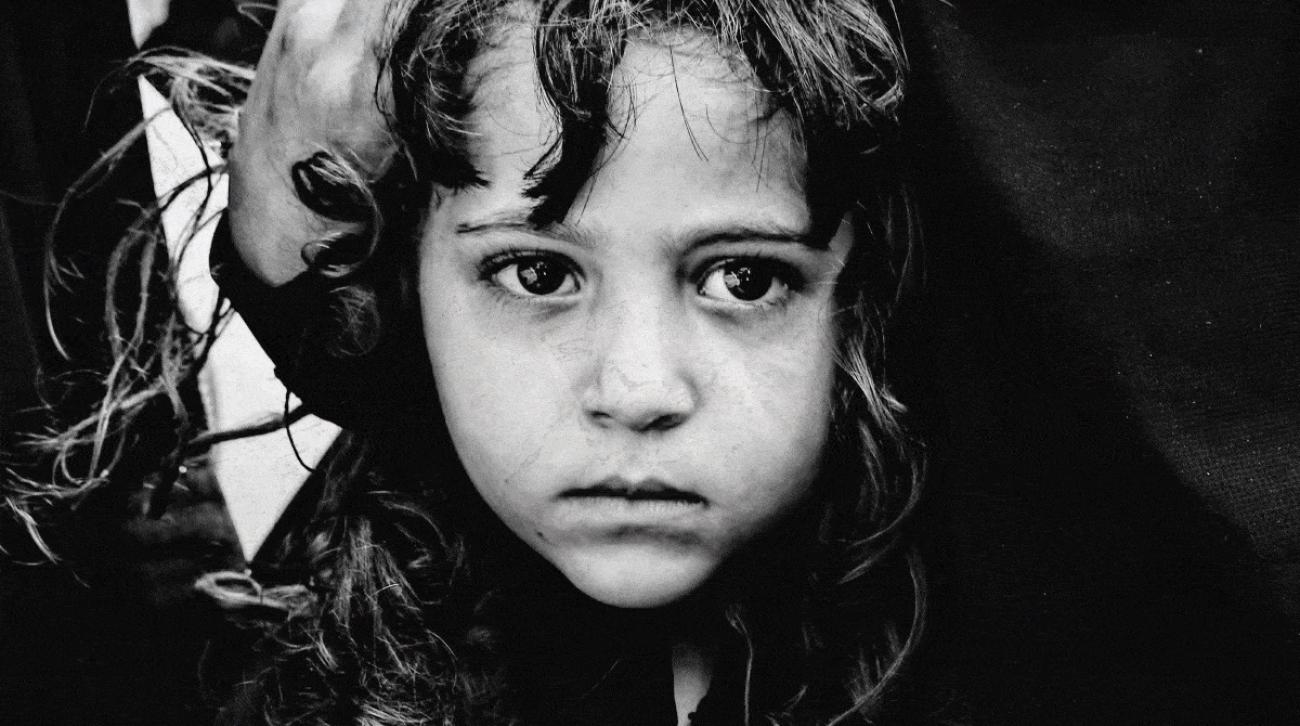
Yemenis are currently living through the world’s largest humanitarian crisis, a disaster compounded by the impact of the COVID-19 pandemic and severe economic crisis. Two thirds of Yemenis need humanitarian assistance to survive. More than 16 million Yemenis will face hunger this year, with nearly 50,000 of them already starving to death in famine-like conditions.
The United Nations, led by OCHA, and its partners have been on the frontline of the response. Current resources are not enough to meet critical needs or to hold back the massive famine. There is a dire need to scale up humanitarian operations.
To meet the needs of the millions of people, relief agencies will require nearly US $4 billion. Without such this support, the humanitarian situation will rapidly deteriorate, and aid agencies will be forced to cut lifesaving programmes.
Today, the UN is convening a high-level pledging event, co-hosted by the Governments of Sweden and Switzerland. The are calling for immediate funding to prevent widespread famine across the country.
UN teams will continue to tirelessly support the people of Yemen. With this call for generosity and solidarity, any additional funding will help reinforce the efforts being made and progress towards a political solution for Yemen.
1) Preventing large-scale famine across the country
“The war can get you in many ways. It is not only the bombings. People suffer when their homes are taken away. People die of hunger and there is not enough water. The thing that worries me most is that the war will continue on and on into the future. It will be my future.”
Amina, a young Yemeni girl shares words from a letter she wrote to the world.
Her voice echoes a generation of children in Yemen that have not experienced life outside the war. Up to one in four children are acutely malnourished in parts of the country. With COVID-19 squeezing incomes and disrupting food supplies, the scale and impact of food insecurity is on the verge of large-scale famine. Sixteen million people in Yemen are at risk of going hungry this year. Nearly 50,000 are starving as pockets of areas have regressed in the last two years.
The World Food Programme (WFP) aims to provide food assistance to more than 13 million Yemeni each month, their largest emergency response in the world. Through direct food distributions and vouchers, people can get food at their local merchants. WFP also provides food to 2.1 million school children. These efforts have helped families keep food on the table, allowing them to envisage a future for their children.
The UN also prioritizes aid for the most vulnerable. For its part, WFP is providing nutritional support to the 3.3 million pregnant and nursing women. The UN Development Programme (UNDP), the UN Population Fund (UNFPA) and The World Bank are particularly targeting the 1.2 million pregnant and nursing women that are suffering from malnutrition.
A cash for nutrition programme has been set up. It employs local women as community health educators. So far, 5,000 women have received basic training to provide monthly nutrition education sessions and to screen for malnutrition.
2) Improving access to essential healthcare
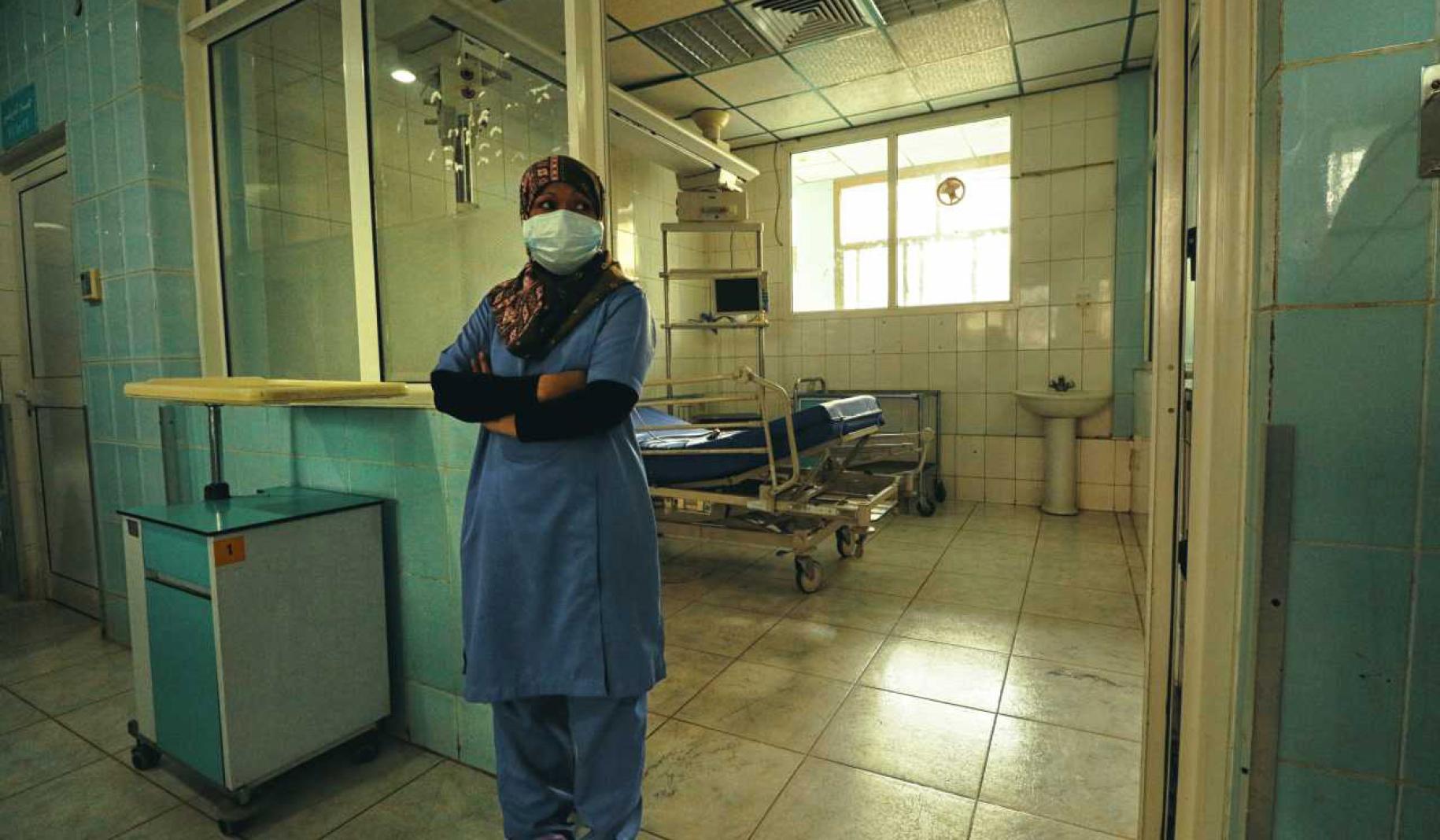
“As a nurse, I want to help and treat patients. I can see a gunshot wound or shrapnel injury, but I can’t see this,” said Irene Versoza, a nurse at the University of Science and Technology Hospital in Sana’a.
In 2020, an already thorny humanitarian crisis has been made even more challenging by COVID-19. Even before the pandemic hit, the conflict in Yemen meant that the country’s health system was functioning at 50 per cent of its normal capacity.
“We know that COVID-19 is a very real and dangerous threat. But if we focus on this virus alone, we lose sight of others who are dying from diseases that are not COVID-19 and we cannot leave them behind," said Dr. Muhammad Fawad Khan, the UN’s Health Cluster Coordinator in Yemen.
UN agencies have stepped up their emergency response in the face of the pandemic. Early in 2020, during a critical phase of the pandemic, a plane carrying a total of 43 tons of laboratory supplies, ventilators, test kits, polymerase chain reaction machines and vital personal protective equipment arrived in Yemen. UN agencies distributed the supplies to hospitals and laboratories nationwide. The pandemic has seized the attention of the world, but it is not the only disease putting Yemenis at risk.
In Yemen, the UN Health Cluster includes UN agencies and local and international NGOs. Partners split the response effortes into grids on a map, so that they can meet humanitarian needs systematically. But while UN agencies tend to emergency needs, they are also working on long-term solutions to secure the health, welfare and dignity of displaced people in Yemen.
3) Restoring people’s access to critical services
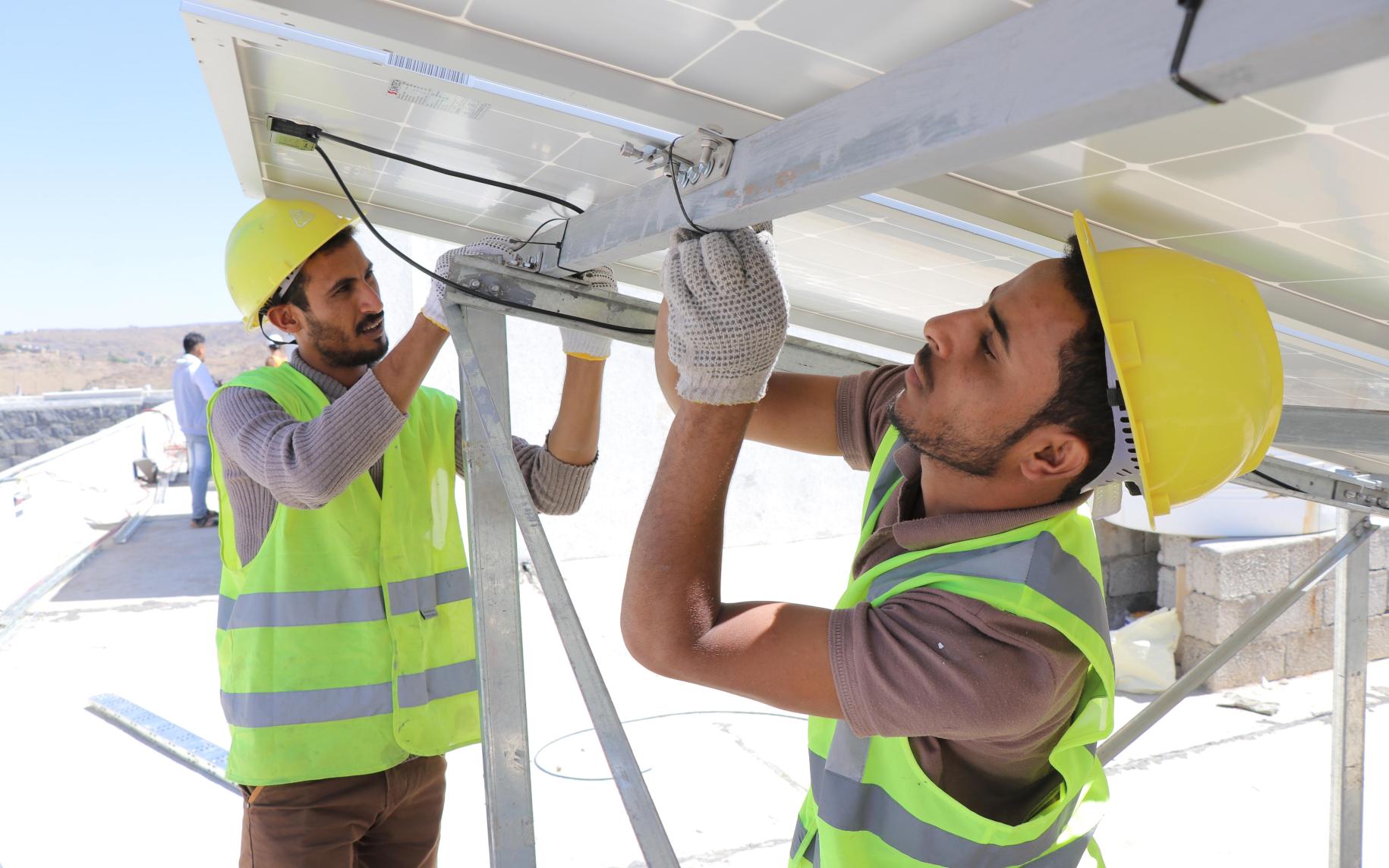
“The [solar] project offered a radical solution to our electricity crisis, allowing us to offer quality services to women, as now the hospital is operational 24 hours. We can also perform major and regular cesarean sections,” stated Dr. Mumtaz Abdo Mohamad Chafih, General Surgeon and Manager of Obstetrics and Gynecology at Ash-Sha'ab Hospital.
Throughout the country, long-lasting power outages have crippled development efforts, wreaking havoc on other essential services such as education, WASH, and healthcare. Rebuilding the country’s infrastructure will be instrumental to the survival of the country. Access to health also requires restoring key services such as energy, water and sanitation, transportation, and waste management.
According to the UN Office for Project Services (UNOPS), today, with only 10 per cent of the country connected to the public electricity grid, a large majority of the population is deprived of reliable access to electricity. To relieve the ongoing crisis, UNOPS, with funding from the World Bank, is working to restore access to critical urban services in selected cities across Yemen, by working with local implementing partners to provide off-grid solar electricity solutions for schools, hospitals, streets and households.
“I felt secure and relieved. I could turn the light on and see what was around me […] I can read […] cook my dinner and eat comfortably”. […]. We used to sleep, drink and eat in the dark […]. It was part of our struggle” said Ibrahim Saleh.
Before solar panels were installed in his home, Ibraham was one of millions living in the Wesab District, Dhamar Governorate, who used to live in darkness as soon as the sun set.
4) Safeguarding the lives of women and girls
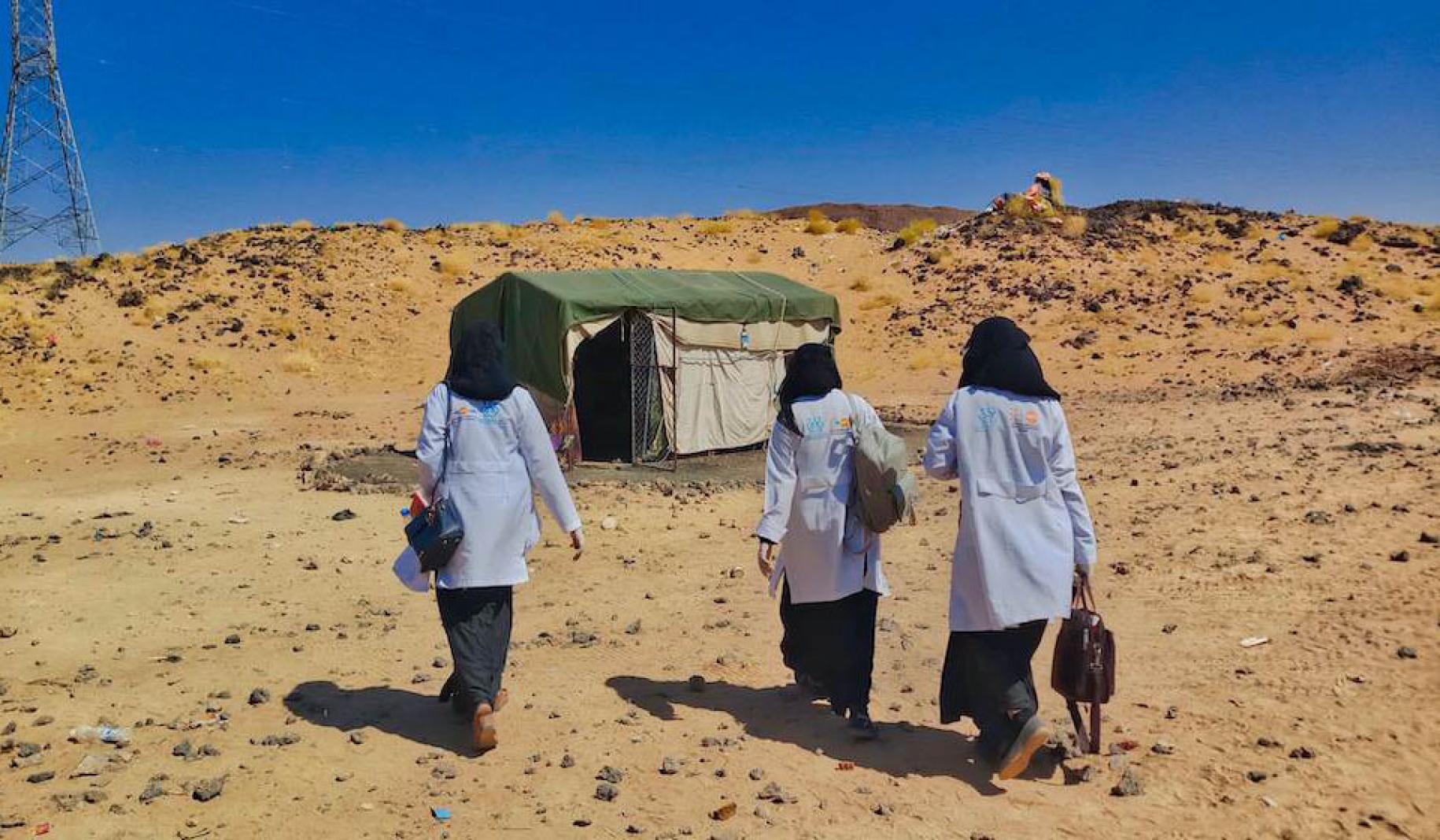
"I started to suffer from rising prices. I found it difficult to pay rent and meet the daily expenses, not to mention the medicines for me and my children,” Um Nuria explained.
Um Nuria suffers from a heart condition and two of her six children suffer from asthma. For the last 17 years, Um Nuria has supported her family by selling traditional Yemeni samosas in front of a local school in Al-Hodeidah. But the conflict in Yemen created severe economic hardships.
Yet, Yemeni women persevered to find new ways to support their families—several did so by starting their own small businesses. Women who found success in their new trades, like Um Nuria, felt empowered. But, the emergence of the COVID-19 pandemic has cut short their success, and with it, hopes of better lives. With the added economic, health and social stressors of COVID-19, domestic violence cases have been on the rise.
In view of the disproportionate impact of conflict and crisis on women and girls, the UN teams are placing women and girls at the centre of their response efforts. UN Women is providing women entrepreneurs vocational training and funding support for their businesses, as well as working with partners and the Government to integrate women and girls’ needs into the national COVID-19 response plan. For its part, UNFPA is enhancing the skills of midwives, supporting the upgrade of maternity wards and deploying mobile reproductive health teams. UNFPA is also providing psychosocial support throughout the country.
5) Protecting the most vulnerable, including those newly displaced
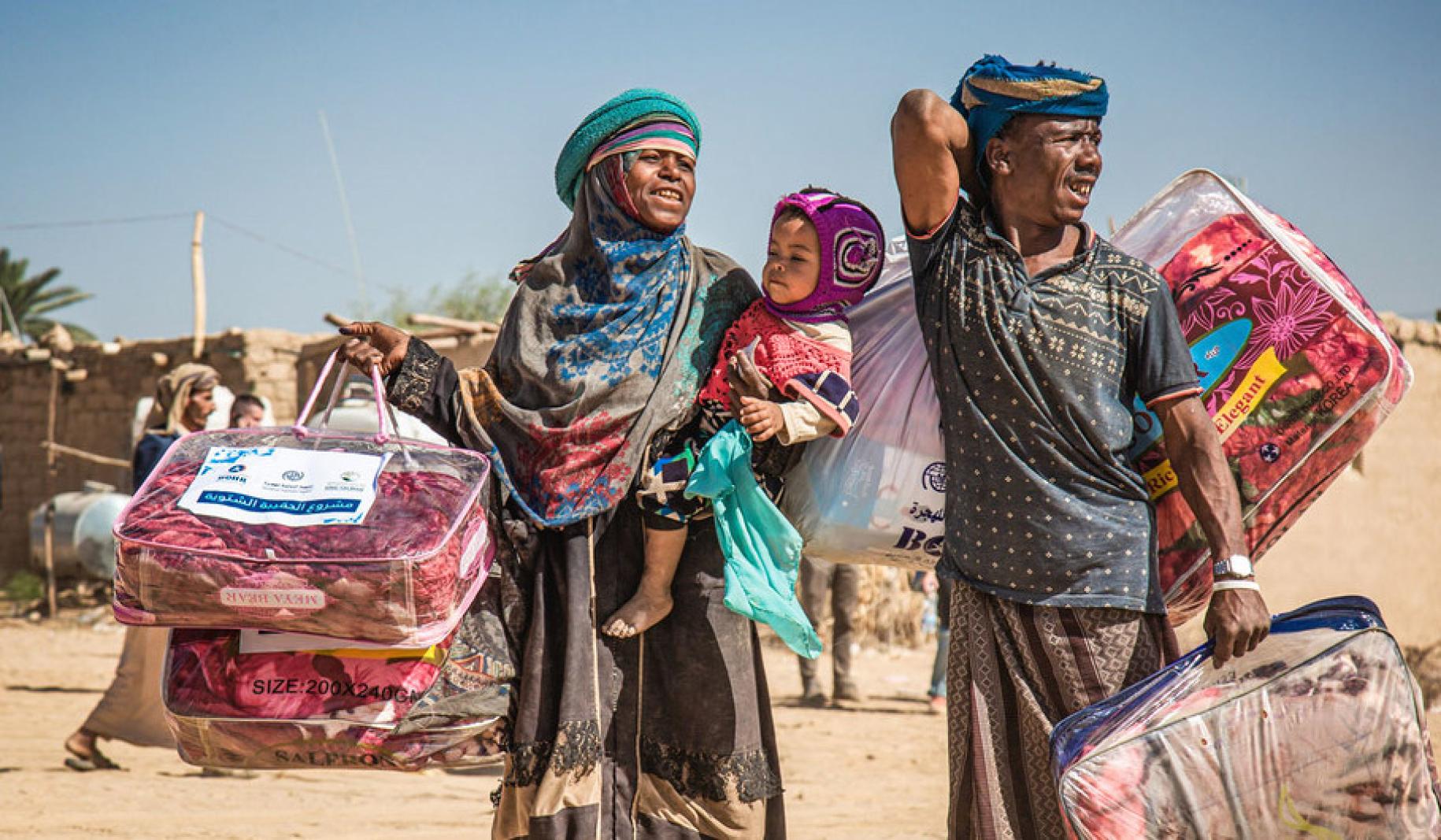
While the conflict in Yemen has hit the entire country hard, few have felt the deprivation as keenly as the Muhamasheens, an outcast ethnic group dubbed the ‘marginalized ones’ that were already suffering the legacy of centuries of discrimination and poverty before the war broke out in 2015. Mariam, 50, belongs to this community. She and her family were forced to flee their home in Sa’ada, north-western Yemen. She now faces a daily battle for survival alongside 136 other families on a site hosting displaced Yeminis in the Kharif district of Amran governorate.
“Most of the time, we only eat once a day. I don’t have fuel or firewood, so we burn plastic bottles and rubbish when we have something to cook”.
Seven years of conflict have forced nearly four million Yemenis to flee elsewhere in the county in search of safety.
In addition to providing shelter, essential household supplies and cash assistance to the most vulnerable, the UN Refugee Agency (UNHCR) and humanitarian partners are also monitoring the Muhamaseens needs, and providing legal assistance to obtain identification documents. The lack of identity documents and exclusion from any tribal affiliation means that the Muhamaseens are often ineligible for food distributions and other forms of humanitarian.
With the rise of hostilities in Yemen's Ma'rib governorate, at least 8,000 people left their home in recent weeks. This brings the total number of displacements in that part of the country to more than 116,000. The International Organization for Migration (IOM) and partners are working tirelessly to respond to the needs of these newly displaced people.
“I no longer fear death. I am tired of life. But I do fear becoming injured or disabled because I have no one to take care of me and I fear my son’s condition is getting worse”.
Saliha said speaking over the sound of a nearby explosion. She’s an elderly woman and she was forced to leave a displacement site in Sirwah.
Still a long road ahead and no time to wait. Yemen needs action now.
The UN has been helping millions of Yemenis find light in their lives amid the country’s darkest times. But there is still a long road ahead, as millions of others also deserve to see their lives improve and to dream of a fulfilling future.
If we do not receive the funding we need for the aid operation in Yemen, this year, it will be catastrophic for the prospects for peace in the country. More money for the aid operation is the fastest, most efficient way to support famine prevention right now. With $3.85 billion we can help more than 16 million people. Peace is the ultimate prize, but the most pressing problem in Yemen today is famine. We urge donors to pledge generously and pay promptly. We want to turn promises into food, water and other lifesaving aid as quickly as possible. 2020 was a hard year for all of us, but there aren’t many people hurting more than the average Yemeni today.
This is not the moment to step back from Yemen. Let’s stand by the people of Yemen.
To donate to the crisis, visit: https://crisisrelief.un.org/t/yemen.
Based on stories by OCHA, WFP, UNFPA, UN Women, UNOPS, UNHCR, The World Bank and IOM, as cited throughout this article. Produced by the Development Coordination Office. To learn more about the appeal, visit: https://www.unocha.org/yemen2021.





































